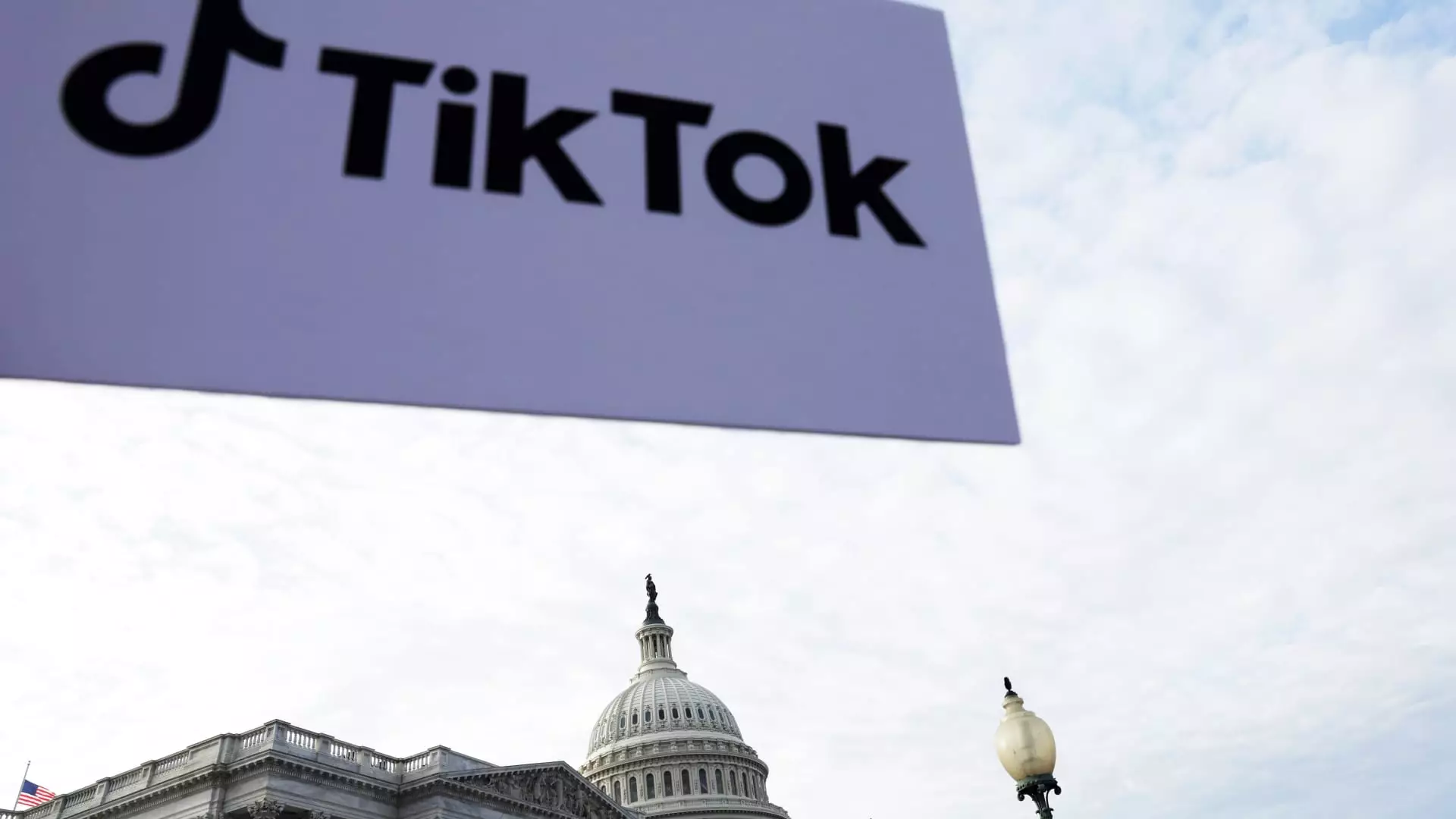As the deadline for a potential TikTok ban approaches, the U.S. Congress is intensifying its scrutiny of corporate responsibilities tied to national security. In a public letter to Tim Cook of Apple and Sundar Pichai of Alphabet, Representatives John Moolenaar and Raja Krishnamoorthi from the Select Committee on the Chinese Communist Party have urged these tech moguls to prepare for compliance with a law mandating the divestiture of TikTok by its parent company, ByteDance. Set against a backdrop of rising concerns over Chinese influence and data security, this politically charged issue poses significant ramifications for both the companies involved and their users.
This new regulatory stance stems from a recent ruling by the U.S. Court of Appeals, which upheld a law that could lead to the effective prohibition of TikTok services if ByteDance does not sell the platform by mid-January. The directives from Congress indicate a strong belief that platform operators such as Apple and Google carry a fundamental responsibility to shield U.S. consumers from foreign entities viewed as potential threats. This raises vital questions about the role of these tech giants not merely as service providers but as de facto gatekeepers of user safety and privacy.
The refusal or failure of ByteDance to divest may result in Apple and Google being legally obliged to suspend TikTok services in the U.S. This law encapsulated in the recent letters to tech leaders indicates the significant pressure exerted by lawmakers. They emphasize that compliance is not merely optional but a legal obligation aligned with U.S. national security interests. Such a potential decision is unprecedented and hints at a new paradigm in which major technology firms must navigate complex legal landscapes while considering the broader implications for free speech and economic impact.
The situation compels a reexamination of how tech companies interact with international markets while adhering to domestic laws. The dilemma they face is not just about compliance; it’s about balancing the scale of user interests against what is perceived as a clear national threat. The stakes have never been higher for companies like Apple and Google, which could find themselves embroiled in public sentiment should they choose to prioritize profits over principles.
A significant dimension of this ongoing crisis is the legal challenge presented by TikTok itself, which argues that the regulation effectively violates the First Amendment rights of its vast user base. With over 170 million U.S. users, TikTok’s potential ban is not only a matter of national security but also a question of free speech and individual rights. This complexity underscores the broader implications of the legal argument against the TikTok ban and positions the company at the intersection of business innovation and constitutional protections.
Furthermore, the debates surrounding this ban often evoke discourse about whether the U.S. is nimble enough to keep pace with tech trends, especially in comparison to how regulators manage emerging technologies. TikTok’s response reflects a significant pushback against policies that could stifle creativity and economic opportunity within the U.S. market.
While lawmakers focus on national security, the potential economic fallout of a TikTok ban cannot be overshadowed. TikTok has warned that a U.S. ban could result in nearly $1.3 billion in lost revenue for American small businesses and social media influencers, emphasizing the adverse consequences that could ripple through the economy. This warning speaks volumes about the role of digital platforms in modern commerce and community engagement. The implications extend beyond mere fiscal metrics, planting seeds of concern about employment, small business survival, and the future of digital entrepreneurship.
Such warnings draw attention to the interconnectedness of technology and economy and raise valid concerns about whether lawmakers have adequately accounted for the broader consequences of their proposed actions. The intricate relationship between platforms like TikTok and their user communities defies simple regulatory solutions and necessitates a more nuanced, holistic approach.
As we approach the critical deadline for ByteDance’s compliance, the issues at hand reveal a complex tapestry of legal, ethical, and economic threads. In a rapidly evolving digital landscape, the interplay between national security, corporate responsibility, and user rights will undoubtedly shape the future of not only TikTok but the broader regulatory landscape for technology companies. How this saga unfolds will likely serve as a precedent for future interactions between lawmakers, tech giants, and everyday users. Balancing these interests will require astute navigation of legal frameworks, corporate ethics, and the ever-critical need for innovation in a challenging and often hostile environment.


Leave a Reply